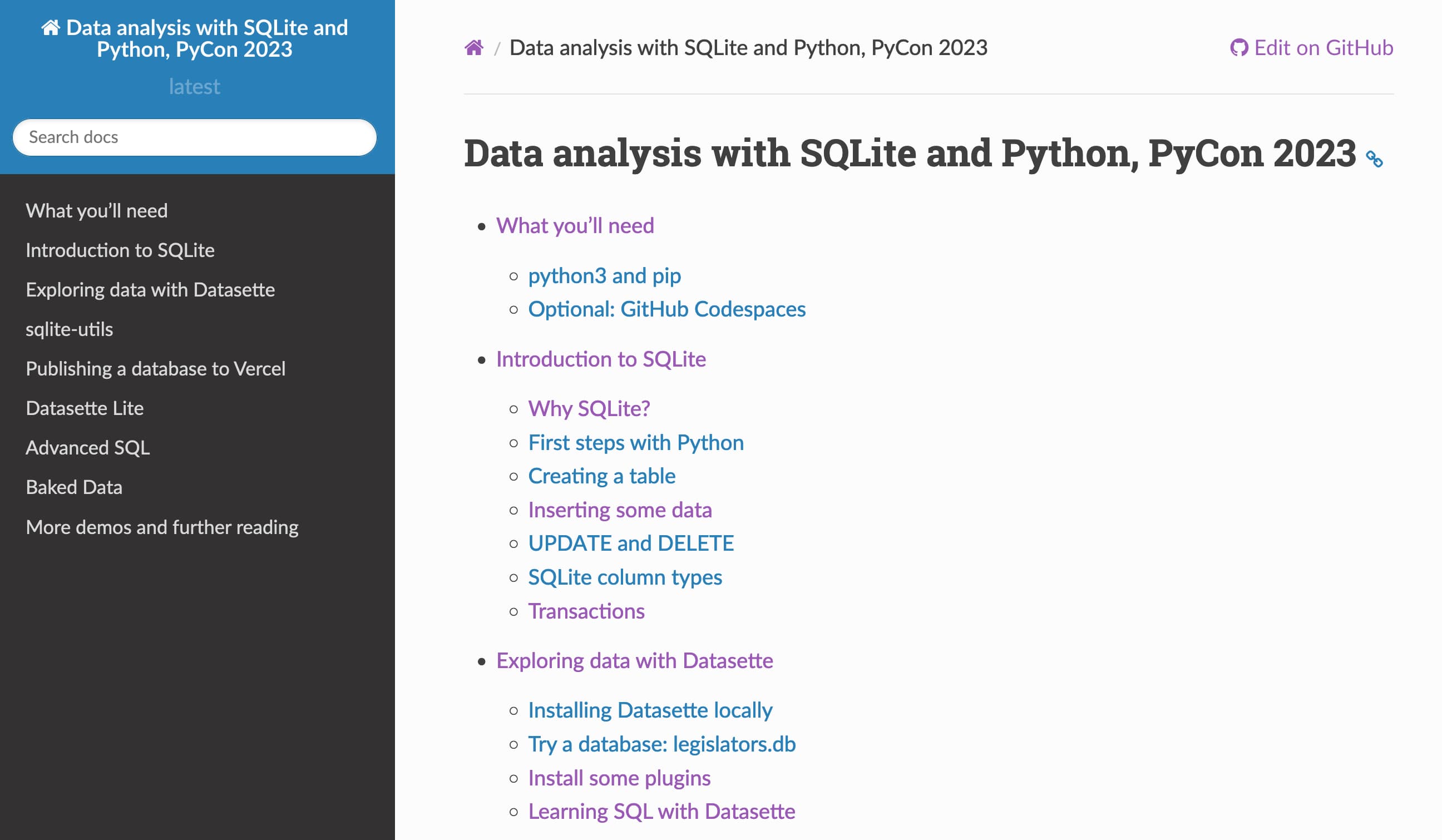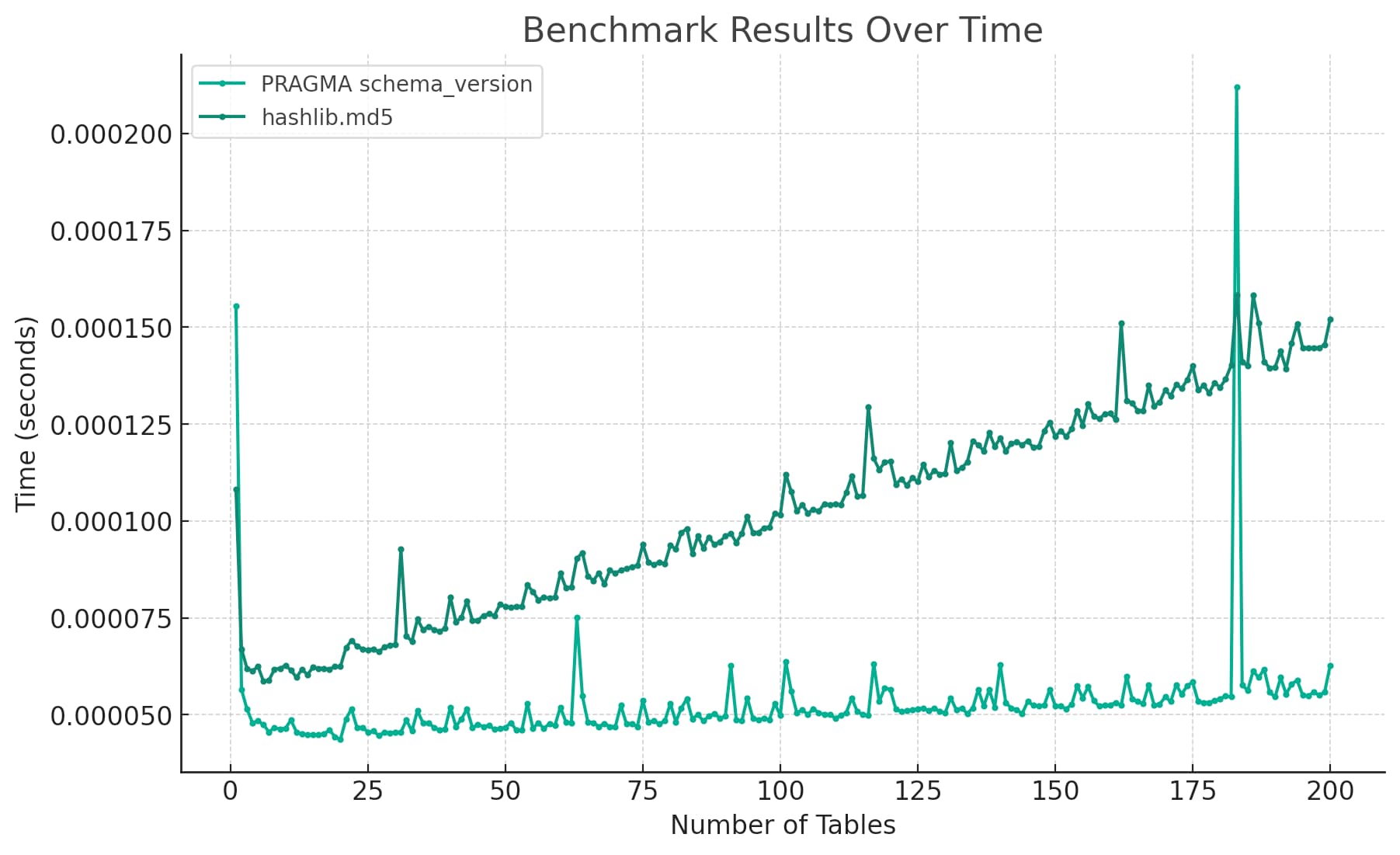Posts tagged python in Apr, 2023
Filters: Year: 2023 × Month: Apr × python × Sorted by date
urllib3 v2.0.0 is now generally available. urllib3 is 12 years old now, and is a common low-level dependency for packages like requests and httpx. The biggest new feature in v2 is a higher-level API: resp = urllib3.request(“GET”, “https://example.com”)—a very welcome addition to the library.
Rye.
Armin Ronacher's take on a Python packaging tool. There are a lot of interesting ideas in this one - it's written in Rust, configured using pyproject.toml and has some very strong opinions, including completely hiding pip from view and insisting you use rye add package instead. Notably, it doesn't use the system Python at all: instead, it downloads a pre-compiled standalone Python from Gregory Szorc's python-build-standalone project - the same approach I used for the Datasette Desktop Electron app.
Armin warns that this is just an exploration, with no guarantees of future maintenance - and even has an issue open titled Should Rye exist?
Introducing PyPI Organizations. Launched at PyCon US today: Organizations allow packages on the Python Package Index to be owned by a group, not an individual user account. “We’re making organizations available to community projects for free, forever, and to corporate projects for a small fee.”—this is the first revenue generating PyPI feature.
Data analysis with SQLite and Python for PyCon 2023
I’m at PyCon 2023 in Salt Lake City this week.
[... 347 words]codespaces-jupyter (via) This is really neat. Click “Use this template” -> “Open in a codespace” and you get a full in-browser VS Code interface where you can open existing notebook files (or create new ones) and start playing with them straight away.
Running Python micro-benchmarks using the ChatGPT Code Interpreter alpha
Today I wanted to understand the performance difference between two Python implementations of a mechanism to detect changes to a SQLite database schema. I rendered the difference between the two as this chart:
[... 2,939 words]My strong hunch is that the GIL does not need removing, if a) subinterpreters have their own GILs and b) an efficient way is provided to pass (some) data between subinterpreters lock free and c) we find good patterns to make working with subinterpreters work.
Several libraries let you declare objects with type-hinted members and automatically derive validation rules and serialization/deserialization from the type hints – Pydantic is the most popular, but alternatives like msgspec are out there too. There’s also a whole new generation of web frameworks like FastAPI and Starlite which use type hints at runtime to do not just input validation and serialization/deserialization but also things like dependency injection.
Personally, I’ve seen more significant gains in productivity from those runtime usages of Python’s type hints than from any static ahead-of-time type checking, which mostly is only useful to me as documentation.
The different uses of Python type hints (via) Luke Plant describes five different categories for how Python optional types are being used today: IDE assistants, type checking, runtime behavior changes via introspection (e.g. Pydantic), code documentation, compiler instructions (ala mypyc)—and a bonus sixth, dependency injection.
textual-mandelbrot (via) I love this: run “pipx install textual-mandelbrot” and then “mandelexp” to get an interactive Mandelbrot fractal exploration interface right there in your terminal, built on top of Textual. The code for this is only 250 lines of Python and delightfully easy to follow.

